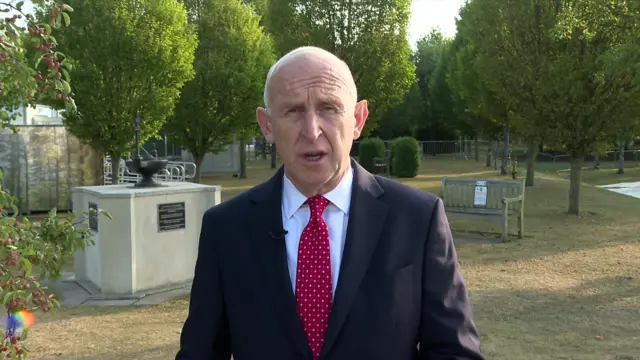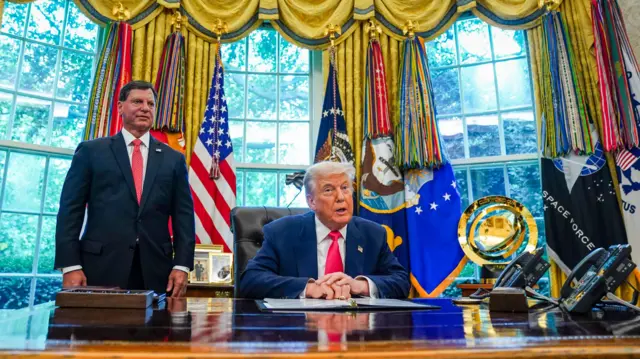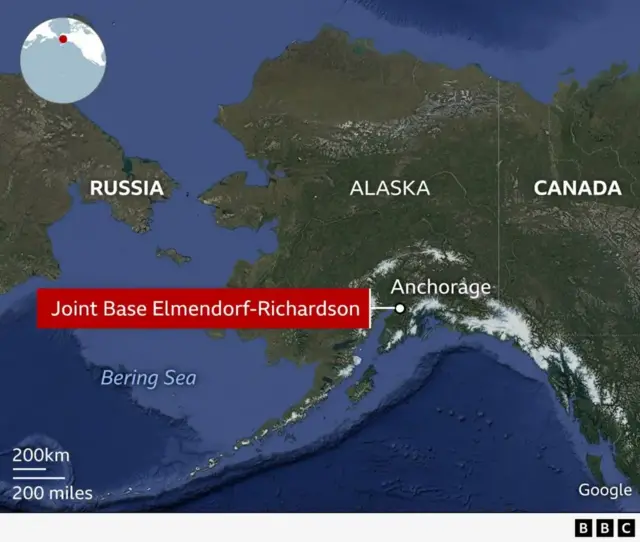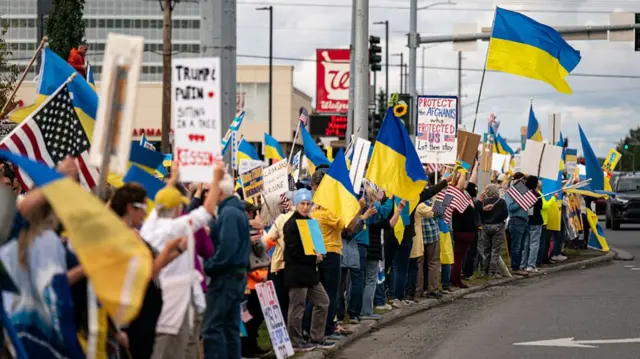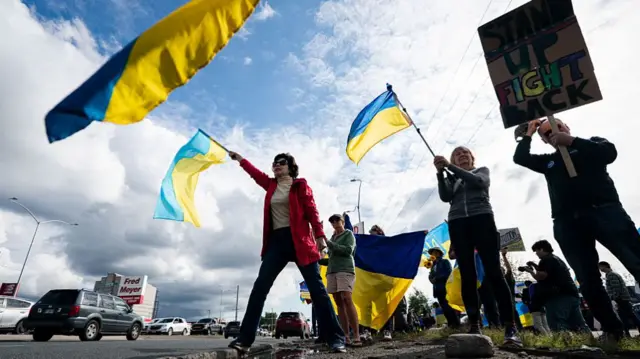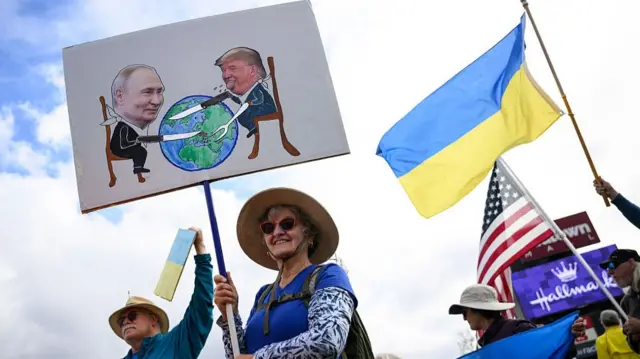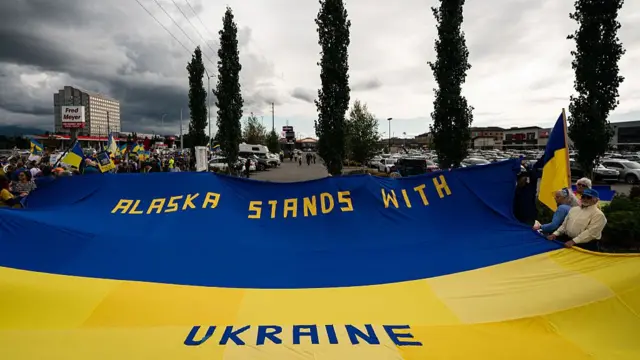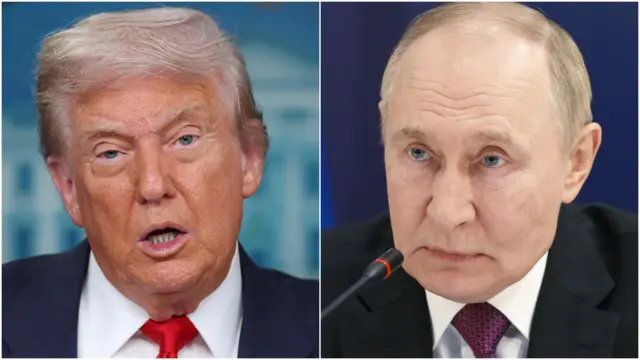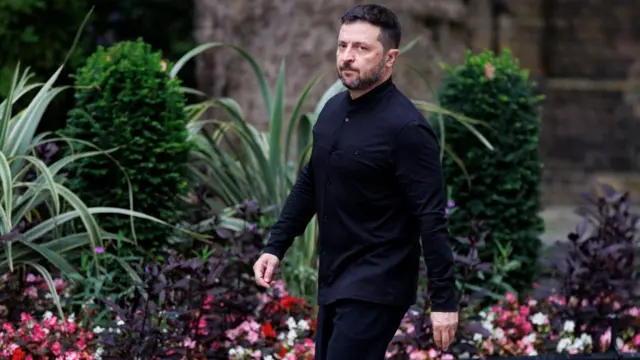Severe consequences and silence: What the US and Russians have saidpublished at 08:21 BST 15 August
 Laura Gozzi
Laura Gozzi
Europe reporter
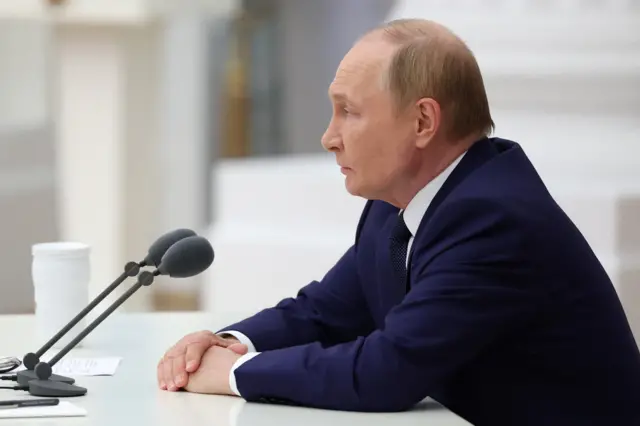 Image source, Reuters
Image source, ReutersPutin was pictured in Moscow on Thursday, holding talks with senior leaders in Russia in preparation for summit
In the US
Throughout the week, the American approach to the aims and hopes for the summit has been varied – shifting from the positive, to the cautious, to the menacing.
At the latter extreme, Trump has threatened "very severe consequences" if his Russian counterpart does not agree to end the war. What seemed to harden his approach was a group call on Wednesday with European leaders including Zelensky.
On the other hand, Kyiv will have been alarmed when Trump mooted the "swapping of territories", and the White House indicated that the president would take a passive approach by treating the meeting as a "listening exercise".
In Russia
The Russians have remained mostly silent – refusing to engage with speculation and rumours of frozen frontlines, territorial exchanges or minerals deals between Moscow and Washington.
There is consistency in that silence. Whenever Kremlin officials have spoken this week, it has been to reiterate Putin's seemingly intractable position on the conflict.
They have restated that the war will only end once Russia gains full sovereignty over the Ukrainian regions it partially occupies – Donetsk and Luhansk, known as the Donbas, as well as Kherson and Zaporizhzhia – and a pledge that Kyiv will demilitarise and not join Nato, the military alliance of Western powers.
But Trump seems convinced that the usually convivial relationship he has cultivated with Putin could help him unlock a deal to end the conflict and further his image as a global peacemaker.
